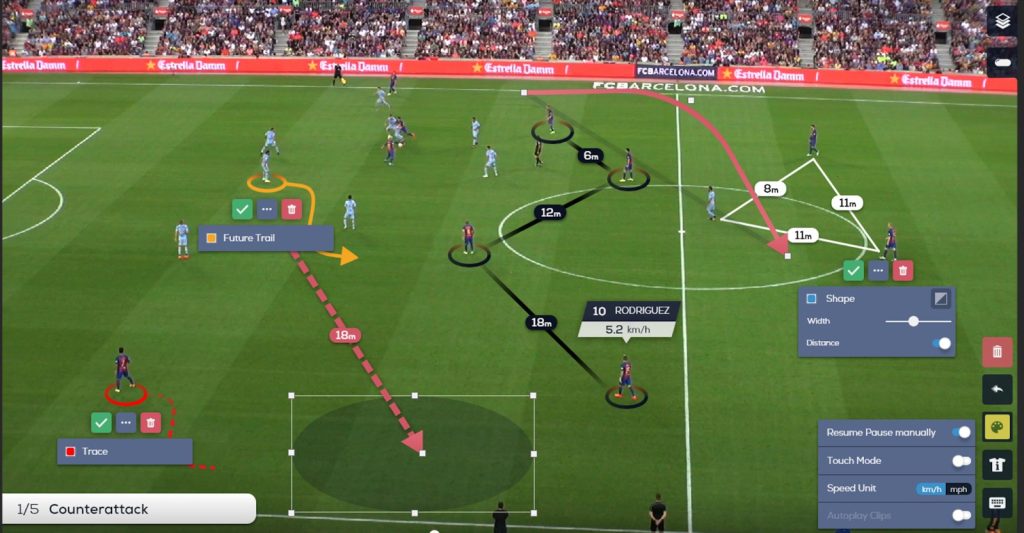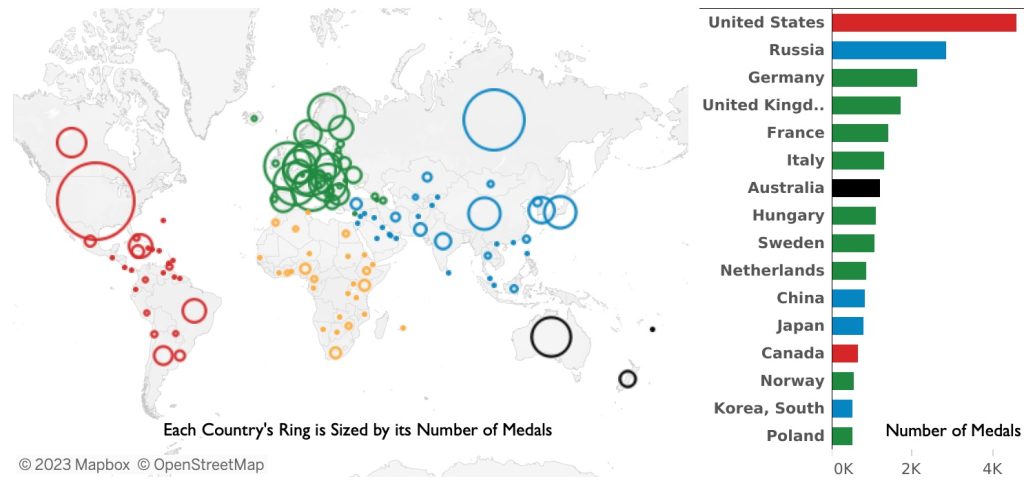The year is 2002. Oakland’s Athletics just lost three of their key baseball players. It was important to replace them with talented players to stand a chance at a successful Major League Baseball season. They had to come up with a new way to recruit skilled players. And they did. That season, the Oakland’s Athletics bested their previous record and won 20 consecutive games. How? By using data analysis.
These analyses showed which qualities predicted success on the field and influenced which players the team recruited. With the evolution of fast computers and data collection, the use of data analytics in sports has only grown. Big data has become an important part of sports, being used for a wide array of things, including recruitment, training, injury prevention and equipment development. However, as innovations increase, one question has to be asked: should we even want this? Or does the involvement of big data in sports only result in a negative change in the game?

It works
Professional coaches, teams and players will do everything to win a game. The Oakland’s Athletics showed that the use of data works, and therefore a lot of teams are following their example. Nowadays, big clubs like Arsenal invest millions of dollars a year into data analysis. Sport analysts use big data to provide players, teams and organizations with valuable insights for improving their decision making process.
There are many different ways in which the use of big data can help. First of all, AI algorithms can help teams to adapt their strategies for winning. The AI will tell them exactly which actions will positively influence the outcome of the game. Second, data analysis can be used to develop more effective training plans for athletes. Research shows that this can help prevent injuries. So-called special risk injury monitors (SIR’s) can provide helpful insights into the health and fatigue of a player, thus being able to prevent injuries. Lastly, team recruitment can be improved using big data. All the insights available of players’ qualities can help teams to find the players that will most optimize their performances.
This seems like a pretty open and shut case. Big data can improve the outcome of matches, training and athletes’ health. Still, the question remains: is winning the most important thing? Or do the negative consequences outweigh the positive?

Team spirit and mental health
Because of the vast amount of data available about players, focus shifts more and more from decision making based on experience and intuition to decision making based on data. Coaches are constantly influenced by the numbers provided by data analysts. However, some players are important for the team because of their spirit and experience, something that can’t be measured with AI systems. Coaches can be criticized when making a decision based on intuition, for example when lining up a player that is statistically less good but has an important role when it comes to team spirit.
Another focus shift that big data in sports is causing is from the overall collective performance to individual statistics, due to the amount of data on individual athletes. This creates more competition within a team, obstructing a cohesive and supportive environment. When players’ individual performance is that closely monitored, players will prioritize their own performance above the success of the team as a whole. This results in an increasing pressure on players, leading to decreased wellbeing and mental health.
Increasing inequality
New technologies can be used to improve in sports, and that’s great, but the fact remains that not every team has the budget to use them and not every country has access to the same technologies. When technologies have a bigger influence on the outcome of a game than the players themselves, and only rich countries have access to these technologies, all sports will do is reflect the inequal nature of our society. Rich countries already win more medals than poor countries in the Olympics. Adding AI to the mix will only make this worse.

You might be thinking that technology will never become a bigger factor than talent, but in the 2020 Olympics, 21 of the 33 podium spots for track field were filled by athletes wearing Nike shoes. The Nike Alphaflys have even been banned from elite competition. In 2008, swimmers wearing Speedo’s LZR Racer suit set 23 out of 25 records in Beijing. This shows that wearing the right brand might have become more important than having talent. Critics have started calling this technological doping because it gives some athletes big advantages and therefore creates inequalities. Equipment like this can only be developed using data analysis. This demonstrates that technology can have a very big influence on outcomes of games.
Therefore the question arises: if we continue using new technologies to advance in sports, how long until sports is not about talent and skill anymore? When do sports stop revolving around athletes and start being a game of showing off money?
Privacy
Everything involving big data comes with privacy issues. Sports is no exception. What happens when there is a data leak? If opponents get their hand on the data, they could have an unfair advantage, being able to play to the other teams weaknesses .There is also a chance that these data will be used for betting on outcomes of matches, when it falls into the wrong hands. The unfair owning of data can also result into an unfair market for buying and selling.
Besides this, using sports analytics will result in athletes being forced to give up all their data. Because if they dont wat to give up their data, there is a big chance they will be kicked off of the team. So athletes wanting to compete in elite sports really have no choice anymore, eliminating the ability to give actual consent.
Inevitable, so be aware
So the use of big data in sports works. Using AI will improve sports results on many levels. But should we want this? No, I don’t think we should. Having an advantage even before the game begins that not all teams or athletes have access to, completely goes against the idea of sports, which should be a measure of talent and skill, not money. Besides, there is evidence that using big data can even negatively influence athletes and teams.
However, is it realistic to say we will stop using big data in sports because of this? Of course not. Everyone wants to win, and will use whatever means necessary to do so. Our outcome focussed society will always look for ways to make bigger improvements and get there faster and easier. We will keep going forward, even if we destroy the very game we try to improve. So the best thing to do now, is be aware of how this is changing the intention of the game. Winners are not only created by talent and skill anymore, but also by having the best data analyst behind them.


